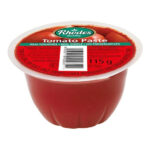Food plays a significant role in various cultural and religious traditions worldwide, and one such dietary practice that holds profound importance is the kosher diet. Rooted in Jewish religious laws, the kosher diet encompasses a set of principles and guidelines that govern the selection, preparation, and consumption of food. This article aims to shed light on the principles and guidelines of a kosher diet, emphasising its spiritual significance and its impact on adherents’ daily lives.
The Spiritual Significance of the Kosher Diet: Kashrut, the body of Jewish dietary laws, is derived from the Torah, the sacred text of Judaism. The kosher diet is more than just a set of dietary restrictions; it is a spiritual practice that connects adherents to their faith and fosters mindfulness in daily life. Observing a kosher diet is seen as a way of sanctifying one’s existence and elevating the act of eating to a holy endeavour.
Principles of Kosher Dietary Laws:
- Prohibited Animals: The kosher diet specifies which animals are deemed kosher (fit) for consumption. Land animals must have split hooves and chew their cud, such as cows and sheep. Among sea creatures, only those with both fins and scales, such as tuna and salmon, are considered kosher. Additionally, certain birds, such as chickens and turkeys, are allowed, while others, like eagles and owls, are prohibited.
- Separation of Meat and Dairy: One of the fundamental principles of kosher dietary laws is the complete separation of meat and dairy products. This means that kosher-observant individuals do not consume or cook meat and dairy together. They must wait a designated amount of time between eating meat and dairy products to ensure there is no cross-contamination.
- Ritual Slaughter: Animals consumed in a kosher diet must undergo a specific method of slaughter known as shechita. This involves using a sharp knife to swiftly sever the animal’s throat, causing instant death with minimal suffering. This technique is believed to promote both humane treatment of animals and the removal of blood, which is prohibited in kosher dietary laws.
Guidelines for Kosher Food Preparation:
- Kosher Certification: To ensure adherence to kosher standards, many packaged food products bear a kosher certification symbol, known as a hechsher. These symbols indicate that a reliable kosher-certifying agency has supervised the food’s production, ingredients, and manufacturing processes.
- Utensil Separation: Kosher kitchens maintain separate sets of utensils for meat and dairy products. This includes separate cookware, utensils, plates, and even sinks. This rigorous separation is essential to prevent any mixing or cross-contamination between the two categories.
- Pareve: Pareve (also spelled parev or pareve) refers to food that is neither meat nor dairy. It includes fruits, vegetables, grains, and some processed foods. Pareve items can be consumed with either meat or dairy, facilitating greater dietary flexibility.
The Significance of Kosher Dietary Laws Today: While the kosher diet originated from religious obligations, it has also gained recognition for its hygienic and ethical aspects. The meticulous guidelines of kosher food preparation, including thorough inspection and specific butchering practices, promote cleanliness and minimise the risk of consuming contaminated or unwholesome food. Furthermore, the kosher diet fosters mindfulness and discipline, promoting an appreciation for the interconnectedness of food, spirituality, and overall well-being.
The kosher diet, rooted in ancient religious texts, continues to be observed by Jewish individuals worldwide. It represents a profound connection to faith, emphasising the importance of mindfulness, ethical consumption, and maintaining spiritual discipline. By adhering to the principles and guidelines of a kosher diet, individuals not only nourish their bodies but also engage in a spiritual practice that sanctifies their daily lives and strengthens their connection to their heritage.








